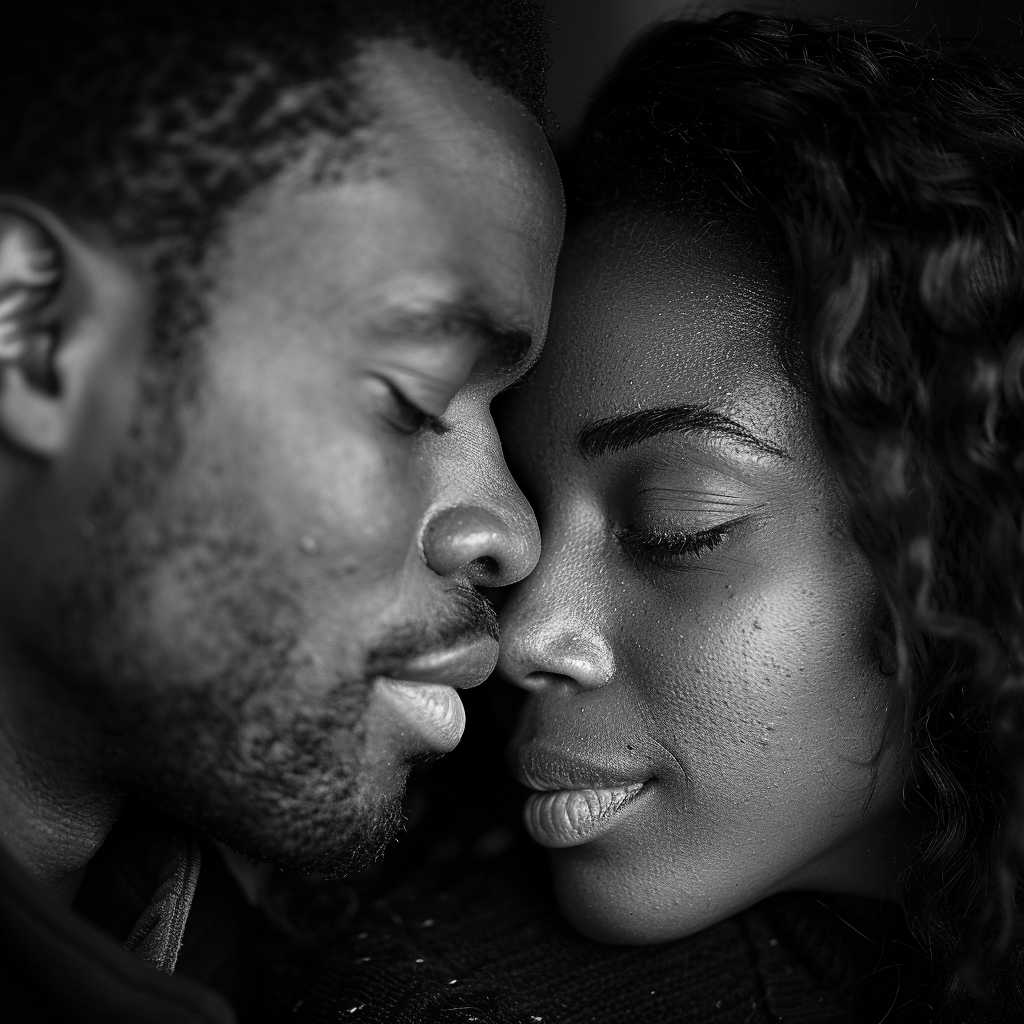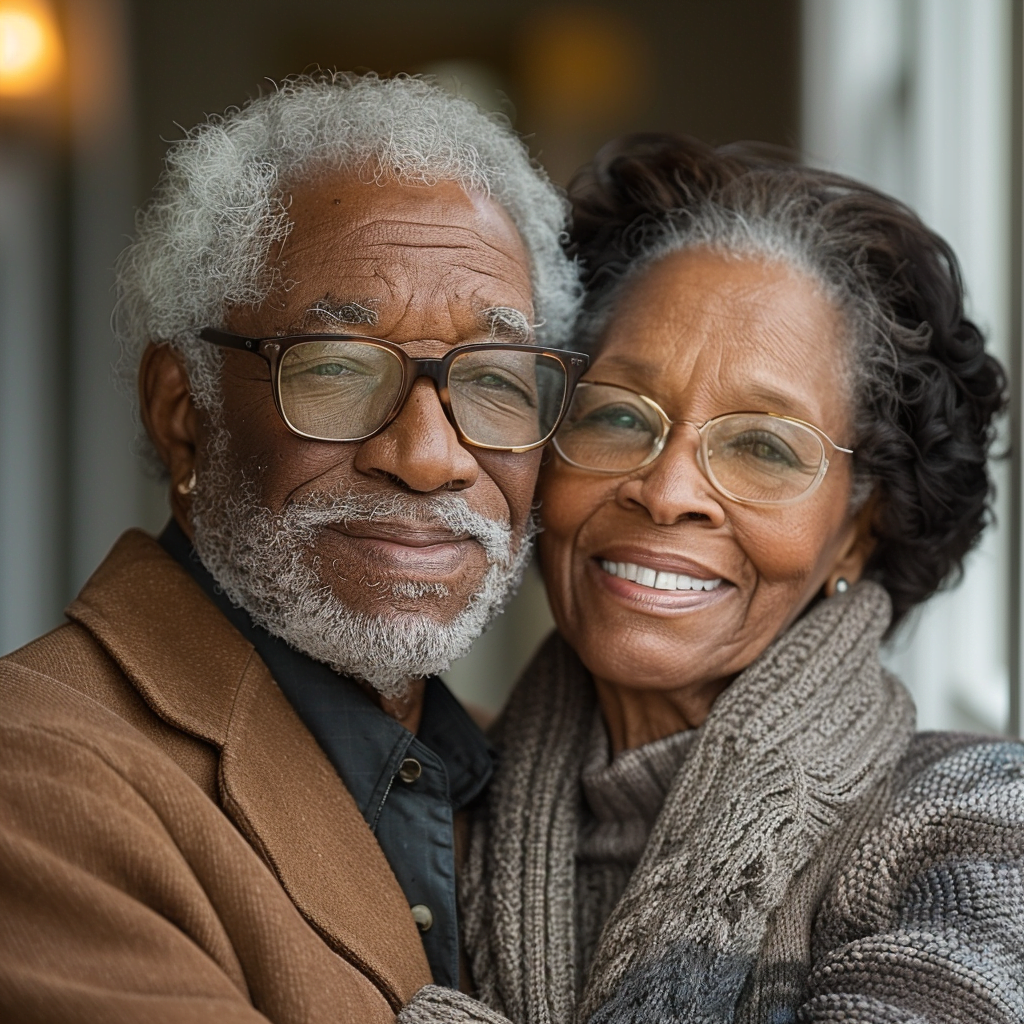Key points
Here are 3 key points on intimate relationships:
- Communication is the bedrock of close relationships. It lets partners share their thoughts, feelings, and needs, creating understanding and bonding.
- Trust is vital, giving people in romantic partnerships a sense of security and certainty, which leads to an emotional bond and relationship stability.
- Respect means recognizing each other’s distinct personalities, limits, and differences.
Contents
- 1 Key points
- 2 Definition of an Intimate Relationship
- 3 Why We Seek Intimate Relationships
- 4 Individual Differences in Intimate Relationships
- 5 How Culture Shapes Our Romantic Lives
- 6 Attraction in Intimate Relationships
- 7 Talking in Close Relationships
- 8 Understanding Love’s Varied Forms in Close Bonds
- 9 The Evolution of Love in Deep Relationships
- 10 Attachment Theory in Intimate Relationships
- 11 How Attachment Styles Affect Your Love Life
- 12 Sexuality in Intimate Relationships
- 13 Disagreements Between Partners
- 14 Conflict Resolution Strategies
- 15 How Power Is Shared in Love Life
- 16 Impact of Unequal Power in Relationships
- 17 Fixing a Broken Relationship
- 18 The End of Close Relationships
- 19 Dealing with a Breakup
- 20 The Role of Close Relationships in Personal Growth
- 21 Exploring Love and Connection: A Look at Research Techniques
- 22 Empirical Evidence and Understanding Intimacy
- 22.1 Social Exchange Theory
- 22.2 Attachment Theory
- 22.3 Evolutionary Psychology
- 22.4 Understanding Intimate Relationship Behaviors
- 22.5 Advantages of Forming Intimate Bonds
- 22.6 Adolescence to Young Adulthood
- 22.7 Midlife Intimacy
- 22.8 Late Adulthood and Beyond
- 22.9 Challenges at Various Life Stages
- 22.10 Transformation in Relationship Formation and Maintenance
- 22.11 Implications of Digital Communication for Intimate Connections
- 23 Intimacy and Its Effects on Health and Happiness
- 24 Intimacy in Relationships
- 25 Impact of Intimacy on Personal Identity
- 26 Formation of Intimate Relationships in Professional Settings
- 27 Challenges of Workplace Intimacy
- 28 Benefits of Workplace Intimacy
- 29 Conclusion
- 30 Impact of Major Life Transitions on Intimate Relationships
- 31 Keeping the Spark Alive Through Changes
- 31.1 How Beliefs in Faith Affect Relationships
- 31.2 The Bonding Power of Shared Spirituality
- 31.3 Legal Views on Close Bonds
- 31.4 What It Means to Have Legal Standing
- 31.5 How Novels See Intimacy
- 31.6 Movies: Looking at Love on Screen
- 31.7 The Artist’s View of Closeness
- 31.8 Unique Aspects of LGBTQ+ Intimacy
- 32 How Society’s Views Impact LGBTQ+ Relationships
- 33 Impact of Disabilities on Intimate Relationships
- 34 Intimate Relationships and Aging
- 35 Getting to Know Intimacy Better
- 36 The Role of Educational Programs in Promoting Healthy Intimate Relationships
- 37 Intimacy in Various Relationship Types
- 37.1 The Role of Intimacy in Non-Traditional Relationships
- 37.2 How Intimacy Works in Polyamorous and Open Relationships
- 37.3 The Importance of Forgiveness in Relationships
- 37.4 The Journey and Obstacles of Forgiveness in Love
- 37.5 How Disagreements Shape Intimacy
- 37.6 Keeping the Peace to Maintain Closeness
- 37.7 The Strain of Money Problems on Romantic Partners
- 37.8 Tips for Financial Harmony in Relationships
- 38 Intersection of Race and Intimacy in Relationships
- 39 Emerging Trends in Intimate Relationships
- 40 The Future of Intimacy
- 41 Getting Closer in Close Relationships
- 42 Jealousy in Intimate Relationships
- 43 Intimacy in Relationships
- 44 Frequently Asked Questions (FAQ)
Definition of an Intimate Relationship

An intimate relationship is when people show love and care for each other, and they’re close in many ways. It can be a romantic thing, a tight friendship or a long-standing partnership. You can tell it by the strong feelings, trust, and how much the partners rely on each other.
Why We Seek Intimate Relationships

We look for close relationships for lots of reasons. Our basic human need to connect, our want for emotional support, friendship, and meeting social needs push us to find others to share our life with. We also want intimacy because we’re looking for someone we can trust, feel safe with, and show love to deeply. Close relationships give us a chance to grow personally and experience life together. Building these meaningful bonds is central to our happiness and health.
The base of close relationships has several key parts. These important pieces work together to make the solid foundation that keeps a relationship strong and long-lasting. To really get what makes them work, we’ve got to look at each one closely.
Attraction and Love
To start with, attraction and love are the bedrock for most relationships. Feeling drawn to someone can happen in different ways, from liking how they look to forming emotional bonds for a deeper connection. From these initial sparks, love grows with shared moments and respect into something that sticks around.
Communication
Communication is crucial. It’s all about understanding and getting close. It’s more than just talking; it’s about body language, listening, and being able to say what’s really on your mind. Good communication is key for working through problems and keeping a relationship fresh.
Trust
How sturdy a relationship is often depends on trust, confidence in your partner’s dependability and support. Trust grows bit by bit as both people show they’re truthful and upright. When it’s there, it helps couples handle tough times and fights.
Respect
Lasting relationships must have respect – you need to value your partner as they are. This means understanding they have their own needs and rights. Respect stays alive through caring actions and fair treatment of each other.
Individual Differences in Intimate Relationships

Every person’s unique traits significantly affect their romantic relationships. Your personality, where you come from, and your past shape how you bond with someone else. For example, outgoing people often look for a partner who enjoys being social just as much, while those who are more reserved may want a partner who gets their need for alone time.
Personality Compatibility
Different personalities can either mesh well together or cause friction in a relationship. Being compatible in traits like openness to experience, responsibility, sociability, kindness, and emotional stability can lead to peace or conflict between couples.
Past Experiences
The things you’ve been through and your previous romances can shape how you handle closeness now. People who had secure and trusting relationships in their early years tend to trust easier, but if your past is less solid, you might struggle to open up.
Communication Styles
The way partners talk to each other and deal with disagreements comes from their background and natural ways of behaving. It’s really important for a partner to be good at talking things out to work through problems and strengthen the relationship.
How Culture Shapes Our Romantic Lives
Cultural rules have a big impact on romantic relationships, dictating what’s okay and what’s not. They shape the way couples interact, covering things like who does what in the relationship to ideas around being with one partner and living together.
What Society Expects
The community has certain expectations that partners may feel they need to follow, such as moving from dating to getting married or who should be doing housework.
The Man/Woman Thing
In many places, there are specific ways men and women are supposed to act in a relationship, which can sometimes create an uneven balance of power or lead to arguments.
What Your Family Thinks
What your family thinks can also influence your love life. It can affect how you raise kids, make decisions, or even who you end up with. This changes a lot depending on where you are and your community’s traditions.
All in all, relationships are complex because they’re built on personal bonds but also affected by social influence. Recognizing this helps us get why human connections are so complicate.
Attraction in Intimate Relationships

What pulls people into romantic relationships is complex and varied. A few key things often kickstart the attraction: looks, charm, having things in common, social factors, and the situation. These elements mix together to create that initial spark that might grow into something more.
Factors Leading to Attraction
A handful of important things make us feel drawn to someone else. First off, we can’t ignore good looks—they often get the ball rolling. But it’s not just about pretty faces; qualities like kindness, a sense of humor, and smarts are also super attractive. The mystery around a person can also make them more appealing. Plus, if we know the other person likes us back, the chances for a closer connection get way better.
Similarity and Attraction
Having things in common is critical for a relationship to grow. When a couple shares beliefs, values, and ways of thinking—the whole similarity thing—it usually means their relationship is going to do well. Enjoying the same hobbies or coming from similar backgrounds can make conversations easier and help people feel they really get each other. Seeing parts of ourselves in our partner feels good and can create strong ties in a relationship.
The Importance of Proximity
Being physically close to someone is super important for starting an intimate relationship, but it’s not just about distance. Being around each other a lot helps people get to know one another better and feel more comfortable—with that comes intimacy. Emotional closeness that comes from sharing life experiences is just as important as being in the same place at the same time.
Social cognition is all about how we think about the social world around us and especially about other people. In close relationships, it means everything we think and believe about our partner. Understanding what they think and feel helps us act right in a relationship.
Impact of Perceptions and Misperceptions
How we see and sometimes misread each other has a huge effect on our relationships. Getting each other’s feelings and intentions right usually means we’ll be kinder and more supportive. But getting it wrong? That can lead to fights, hurt feelings, and a not-so-great relationship. It’s not just what actually happens between people; it’s also how they see those events.
Cognitive Patterns Predicting Relationship Success
There are certain ways of thinking that tell us whether a relationship might last:
– **Positive Illusions**: Having a slightly rose-tinted view of our partner can make everyday annoyances easier to handle.- **Attributional Style**: People who often credit their partner’s good behavior to their character and blame bad behavior on outside stuff tend to be happier together.- **Expectancies**: Realistic expectations can prevent letdowns in a relationship, but unrealistic hopes can lead to frustration if they’re not reached.- **Standards**: Having high standards that you can actually reach often leads to better and more fulfilling relationships.
These points show how crucial social cognition is when building and keeping up with great intimate relationships. The way partners think about each other plays a big part in how they interact and ultimately shapes the direction of their relationship.
Talking in Close Relationships

Chatting is key to growing and keeping close relationships. It lets potential partners exchange words, show emotions, and plan things together, creating a sense of closeness. Good chats can clear up confusion and make things clearer, helping couples to deal with their joint lives better.
Growing Closer by Talking
Talking well is central to relationship growth. It’s about expressing ideas clearly and picking up on the feelings behind your partner’s words, which strengthens the bond. As people chat and pick up on each other’s hints and gestures, they show they’re interested and open.
Listening carefully, understanding, and respecting your partner’s views builds trust. Feeling understood makes it easier to open up, which is important for closeness.
Important Chat Skills for Keeping Closeness
- Listening Actively: You should listen fully, not just hear words. Show you get the point or ask if you don’t.
- Speaking Needs Clearly: Tell your partner what you want clearly and calmly. Choose your words wisely and don’t blame.
- Hints Without Words: A lot of talking happens without words. Faces, hands, and hugs are big in showing true feelings and caring.
- Waiting Your Turn: Let each person talk without butting in so everyone can say their bit without feeling ignored.
- Fixing Disagreements Well: Dealing with arguments in a good way keeps respect even when you disagree.
Using these chat skills often helps couples work through tough times, keeping them close. It’s important to switch up how you communicate depending on what’s needed. Intimacy gets better when both feel safe to speak their minds.
In short, it’s about being good at certain skills and making sure there’s always honest chat. This welcomes growth and a deeper mutual understanding—key for lasting intimacy.
The way we persuade our loved ones is subtle. It’s not about pushing hard but more about gently guiding them during daily life.
The Art of Persuading in Close Relationships
Persuasion in close relationships isn’t about intense arguments or forceful sales pitches. It’s more about gentle encouragement and soft tactics that partners use to lean on each other towards certain viewpoints or actions. This means really getting each other’s values and what makes us tick or dig our heels in.
How We Influence Our Loved Ones
- Emotional Pull: Using emotional ties and understanding can be powerful. Showing how changes impact feelings can sway decisions.
- Giving Back: Creating moments that make partners want to ‘repay’ favours works well. It taps into the balance of give-and-take in a relationship, promoting teamwork.
- Group Examples: Using others as examples can influence what’s normal in your relationship.
- Limited Chances: Pointing out that an opportunity won’t last can make partners decide quicker.
- Staying True: Reminding each other of past actions or promises makes current behaviour fit with who you both are and what you’ve done before.
- Affection Matters: We tend to listen more to those we love, giving partners a strong influence over each other.
These clever moves play off natural motivations and relationship habits to nudge partners toward shared goals without arguing. They show the quiet back-and-forth needed to keep peace and push ahead together.
Feelings are tangled in the fabric of close relationships, influencing what happens between partners. They signal our needs and wishes, telling us and our partner what matters. Happy feelings like joy can make bonds stronger, while tough feelings like anger might point out issues to fix.
The way we share feelings affects how happy and dedicated we feel in our relationship. Regularly sharing good vibes builds support and understanding. But tough feelings can lead to harsh words and discontent, hurting the relationship if not handled right. How couples deal with all their feelings is super important for the relationship’s health and future.
How do feelings shape close relationships?
Feelings affect relationships in many ways. They play into how we chat, fix problems, and show love. Emotions packed with feeling can deepen intimacy if dealt with kindly or make fights worse if handled badly.
Besides, one partner’s reactions can set off the other — it’s like a loop that affects how they act day-to-day, from making choices to being intimate.
The Power of Emotional Smarts in Relationships
Being emotionally smart really helps relationships succeed. If you’ve got emotional smarts, you get your own feelings and can deal with your partner’s emotions too. Partners with these smarts usually have happier and stronger relationships because they:
- Talk better by sharing feelings properly.
- Hear out and understand their partner’s emotional side.
- Sort out fights while thinking about everyone’s feelings.
- Show empathy and create a supportive vibe together.
Couples with emotional smarts lift each other up when times are hard and celebrate together when things are great. Having high emotional intelligence links to more joy, closeness, and better ways to deal with conflict.
To wrap it up, feelings hugely impact the journey of intimate partnerships. They’re central to our interactions with those closest to us. Handling emotions with knowledge and care is key to nurturing a loving and strong connection with your partner.
The complex emotions that make up love are crucial in close relationships. These bonds are marked by deep care, warmth, and sticking together. Love includes everything from strong passion to a solid personal connection.
Understanding Love’s Varied Forms in Close Bonds
In close relationships, love takes on different shapes, each with its own special characteristics:
- Eros: This kind of love is all about fiery, powerful romance. It’s full of yearning and intense longing.
- Storge: Kinda like the affection you find in families or between pals, storge is about a deep bond, trust, and a sense of duty that grows over time.
- Ludus: Ludic love is more about having fun and keepin’ things light. It’s not really about settling down but enjoying the here and now.
- Pragma: Pragmatic love is when two people are together because it just makes sense. They’re a good match and make life easier for each other.
- Agape: Agapic love? That’s when you care for someone so much that you expect zilch in return. It’s all about being there for them no matter what.
- Philautia: Self-love comes in two flavors: the good kind where you value yourself, and the not-so-good kind where it’s all “me, me, me”.
The Evolution of Love in Deep Relationships

As time passes, love tends to change in long-term relationships. At first, lovers might feel a strong sense of excitement and desire (Eros). But as they get used to each other, their love usually grows into a caring, reliable connection (Storge). Couples figure out how to mix fun and surprise (Ludus) with dealing with everyday challenges together (Pragma) and selflessly being there for one another (Agape). To make this growth happen, both people need to work at it, talk openly, and be ready to change when needed.
Know that while the thrill of Eros might fade a bit, the more down-to-earth aspects such as Pragma or Storge often get stronger. This shows a relationship that’s about more than just butterflies in the stomach; it’s about a love that’s grown to fit better with the couple’s current life and needs as time goes on.
Attachment Theory in Intimate Relationships

The idea of attachment theory is pretty solid when it comes to explaining how folks act in close relationships. It’s all about how the connection between a baby and their main guardian affects that kid’s emotions and social skills down the line, especially when it comes to love stuff in grown-up life. The guy who started this theory was John Bowlby and then others like Mary Ainsworth added more to it. Now, it’s super important for understanding how people get along with each other.
How Attachment Styles Affect Your Love Life
The way people act in relationships often goes back to the attachment types they developed as kids. Generally called secure or insecure, these styles make a big difference in how well someone can be close to another person.
Being Secure Means Better Bonds
If you had reliable caregivers when you were young, chances are you’re okay with getting close to others now. Adults who had this steady support usually find it easy to create strong, trustworthy relationships. They have good self-confidence and know how to give and get help from others, which leads to fulfilling friendships and romances.
Facing Trouble with Insecure Attachments
On the flip side, if you’re in the insecure camp—including anxious-preoccupied, dismissive-avoidant, and fearful-avoidant—you might face some bumps when it comes to love. Anxious folks really want to connect but worry a lot about whether their partner loves them enough. Those who are dismissive tend to keep an arm’s length, putting their own independence above the relationship. And if you’re fearful-avoidant, you might crave that closeness yet be afraid of getting hurt, so you steer clear.
Insecure patterns can stir up trust issues, communication mix-ups and not-so-great ways of handling stress. These habits can mess with how happy and stable a relationship is over time. But remember, your attachment style isn’t written in stone. By being aware and making an effort, you can work toward being more securely attached and having a warmer experience with those you care about.
In a nutshell, some people dive into relationships while others hold back, all because of their early bonding experiences. Those early interactions still influence how boldly or cautiously we move through life’s emotional journeys.
Sexuality in Intimate Relationships

Sex is key in close relationships, as it boosts happiness and deepens the connection between partners. It’s more than just physical—it involves emotional bonds and shared joy that makes love stronger. Sexual quality reflects the relationship’s health and acts like a gauge for peace and contentment. Even though varying desires or tastes may pose issues, talking things out and understanding each other’s needs can make a big difference in sexual match-up.
Relation Between Sexual Intimacy and Relationship Satisfaction
The two go hand in hand – good sex can lead to closer emotional ties and a stronger relationship. But what counts more is the thought put into meeting each partner’s wishes, not just how often you’re active. This focus on quality and effort brings joy for both individuals and their partnership.
Contributing Factors to Sexual Compatibility
A few things add up to whether partners will click sexually:
- Talking freely about sexual expectations lets both feel they can openly share what they want.
- Respecting each other’s limits builds trust and safety when being intimate.
- Though looks are personal, they often kick off and keep up the sexual spark.
- Seeing eye to eye on sex’s importance helps couples understand each other’s perspectives.
- Trying out new stuff together keeps bedroom activities fun and fulfilling.
When dealing with sexuality, openness about issues and tuning in to each other’s feelings lead to better sex lives together.
How Intimate Partners Cope with Stress Together
Couples face daily stress that can mess with how they feel and interact. Working through tough times means teaming up against pressure. Communicating—sharing worries and fears—lessens the load and tightens their bond. They find solutions together, share duties, cheer on goals, and support each other through rough patches and concerns. By combining their strength, they become tougher against stress, making it a chance to grow closer.
The Role of Social Support in Intimate Relationships
Support from others is vital in strong relationships. Folks show they care in many ways—emotional comfort, sharing advice, or lending a hand with tasks or money. This support shields partners from stress damage. Plus, having an involved and encouraging partner can really help tackle life’s challenges. Not only does social support cut down on stress, it also amps up relationship happiness, building a firmer bond and lasting security.
Disagreements Between Partners
In any close relationship, it’s normal to run into some arguments. They happen because people have their own ideas, wants, and what they expect outta things. When two folks are really close, like in a romantic pairing, they’re bound to bump heads now and then. The stuff they argue about can be small, like a simple mix-up, or big, like not seeing eye to eye on the really important stuff that matters to them.
Conflict Resolution Strategies
To sort out arguments in a relationship, you’ve got to use smart tactics. These tactics are:
1. Communication
Talking openly, truthfully, and politely is key when you’re trying to fix a fight. Both people need to share what they think and feel without pointing fingers or being mean.
2. Active Listening
It’s important to really listen to the other person. That means not cutting them off or thinking about your comeback while they’re still speaking.
3. Empathy
Seeing things from your partner’s side can help chill things out and make them feel supported while you work out the problem.
4. Negotiation and Compromise
Sometimes, you’ve got to haggle and agree on something that works for both of you, especially with tough disagreements.
5. Taking Time Out
When you’re both heated, pausing the chat can give you time to settle down before getting back to it in a positive way.
6. Apologize and Forgive
Saying sorry can repair some of the harm from the argument. Forgiving can help you get over it and stop bitter feelings from sticking around.
Remember, fixing fights takes work and patience from everyone, and there’s no one-size-fits-all answer for all couples or every problem.
In a couple’s life, power is about who calls the shots and affects what goes down for both people. Sometimes, it’s split evenly so both have the same clout; other times, it tilts more to one side. Stuff like cash flow, jobs, where you come from, and how you get along set up who’s got the upper hand. Folks in a relationship use different plays to pull rank – talking tough or flashing their wallet. But most folks would agree, sharing power fair and square is best for keeping things cool between partners.
Impact of Unequal Power in Relationships
If one person always has the upper hand in a relationship, it can cause trouble. These problems might show up as unhappiness or bitterness in the partner who doesn’t have as much control. And it could get worse—maybe one partner starts using their power to play mind games or take advantage of the other financially. But relationships that are built on respect and fairness usually don’t have these issues because everybody’s got an equal say.
Sure, sharing power equally can work out, but sometimes one person tries to grab more of it than they should. That’s why both partners need to keep an eye on how they share power and talk things through if they spot any unfairness. This can keep their relationship strong and fair.
If there’s a power slip-up, it’s not just the couple that feels it; it can mess with their friendships and self-confidence too. People who don’t get to make choices might start feeling bad about themselves, which can cause even more problems at home and inside their own head. So, paying attention to who calls the shots is super important for keeping a relationship in good shape.
To keep a close relationship going, you’ve gotta work at it all the time. Talking is key because it helps you understand each other and feel connected. Say “thanks” a lot to make the other person feel good and show them they matter. Hanging out together doing stuff you both like makes you closer. Help each other out when times get tough; this makes your partnership tougher too. And when you disagree, figure it out without tearing each other down.
Don’t forget to keep the spark alive with hugs, kisses, and nice surprises every now and then to stop things from getting boring. Stick to these things regularly, and you’ll help keep your relationship both happy and lasting.
Fixing a Broken Relationship
Whenever couples hit a rough patch, getting back on track means thinking things through and taking specific steps. First, both people in the relationship need to admit there’s a problem. You can’t find a fix if you don’t agree something’s broken in the first place.
Then, it’s key to have honest talks where both sides can share what’s bothering them without pointing fingers. When someone messes up, saying sorry for real is the first step to making amends and regaining trust.
Next up, come up with a plan to tackle these issues and stop bad habits from happening again, This will help dodge the same old arguments down the line. To wrap things up, show that you’re both still in it for the long haul. You could do this by renewing your vows or starting new routines that show you two are a team with goals for the future.
If couples give these methods a fair shot and really pay attention, they can patch things up and sail towards a calmer, happier relationship.
The End of Close Relationships

Close relationships can end for many reasons. Not talking properly is a big one. When communication fails, couples often misunderstand each other, and this can lead to more fights. Also, if partners want different things in life or have different beliefs, they may go their separate ways. Trust problems can also destroy a relationship, be that due to cheating or just being unreliable. Another thing that can break them up is if expectations aren’t met. If a relationship isn’t what one person thought it would be, they might get unhappy. Finally, big life changes like money troubles, sickness, or moving can make it too hard for a relationship to survive.
Dealing with a Breakup
After a relationship ends, people often wade through rough emotional waters. The first step is usually to look inward and think about what happened in the relationship and why it didn’t last. Then comes the need to mourn the loss out loud, which is crucial for healing. Many turn to their friends and family for comfort when they’re feeling exposed. Besides leaning on loved ones, engaging in hobbies or learning new things can also help distract and build oneself up. Some find that talking to a counselor or therapist gives them strategies to handle their feelings post-breakup. It’s also helpful to start new routines that give life a sense of order during times that feel chaotic.
The Role of Close Relationships in Personal Growth

Being close to someone else can really help a person grow. When we’re close to others, we often learn more about ourselves. A good relationship can make you think about who you are and help you get better. Spending time with your significant other can show you new points of view and parts of yourself you didn’t know, which helps you grow.
Growth You Get from Being Close to Someone
You learn a lot from being with someone else. Trying out new things or ideas is easier, and you get used to changes and learning. Your partner gives you the push you need to go after big goals that might be scary alone. Plus, figuring out how to handle a relationship helps you talk better, understand emotions more, and bounce back from tough times.
The Give-and-Take of Getting Better with Someone
Working on yourself and having a good relationship go hand in hand. As you work on getting better, your relationship gets stronger too. And having a good relationship can encourage you to improve yourself. Being with someone means you always have the chance to think about how you act and grow. This way, both partners can learn from each other and change together.
The effect of close relationships on personal growth is huge. They offer challenges and rewards that help us grow in deeply personal ways. If both people put in love, patience, understanding, and hard work, their relationship can be a place where they really change for the better.
Different cultures see closeness in unique ways and show it differently too. Culture gives us the rules for how we handle our relationships. Like, some places might focus more on what’s good for everyone rather than what one person wants, changing how relationships work there. Even though cultures are different, love is pretty much the same everywhere as a feeling and in what it means.
Cultural Differences in How We See Closeness
What’s normal in one culture for expressing feelings might not be okay in another. Some cultures don’t like public affection, while others think it’s fine. Communication is also different—some folks say things straight out, others hint at what they mean without words. The right way to act close to someone changes depending on where you are. This can cause some mix-ups when people from different places try to connect.
What We All Want in Relationships Is the Same Everywhere
No matter how much culture affects intimacy, humans everywhere want the same thing: a connection that’s built on trust, kindness, and understanding. Love is a common feeling all over the world. The way people show this love does vary, but everyone looks for that special someone they can really open up to.
Exploring Love and Connection: A Look at Research Techniques
To understand the intricate details of romantic partnerships, researchers use a mix of methods. These tools help us figure out how people relate to each other:
- Questionnaires: Experts get measurable information about relationships by asking folks or their partners to fill out surveys.
- Watching Couples: Observing how partners interact in real-time can shed light on genuine relationship behaviors.
- Controlled Tests: By changing certain factors and watching what happens, researchers can pinpoint what causes what in a couple’s interaction.
- Years-Long Studies: Tracking the same couples for a long while gives insight into the natural progression and shifts in their connections.
- Talks and In-Depth Research: Speaking at length with partners helps uncover the deeper layers of their relationship experiences.
Used together, these research strategies can spot trends and forecast things about romantic bonds that are more reliable than just someone’s tale or guesswork.
Empirical Evidence and Understanding Intimacy
Using solid facts improves how we understand intimacy. When we rely on data from scientific research, our ideas about close relationships are based on real, measured information and not just our personal opinions. For example:
- Causality: Studies help us figure out why certain things happen in intimate relationships.
- Predictability: When we look at the numbers, we get better at guessing what might make a relationship better or worse.
- Generalizability: When we see patterns in different kinds of people, we realize that some relationship problems are common to many.
- Efficacy: We can test if our ways to help relationships really work.
In short, using science shapes how we think about close partnerships. It gives us strong knowledge for both helping relationships in real life and studying love and connections in school.
When we dig into what makes intimate relationships tick, we look at different ideas made by psychologists. Each idea shows us a unique side of intimacy and what makes close connections complicated.
Social Exchange Theory
This idea compares relationships to markets where you swap goods or favors. It says that people want relationships where they get out more than they put in – like making sure you’re on the winning side of the deal. They want it to be fair, so everyone feels like they’re getting a square deal.
Attachment Theory
This one is about the strong feelings that tie us to others. It says the way we acted with our parents when we were babies predicts how we’ll be in love as adults. It breaks down styles into secure, anxious-preoccupied, dismissive-avoidant, and fearful-avoidant, each showing how someone deals with feelings and stress in relationships.
Evolutionary Psychology
This looks at how nature has programmed us to pick and keep mates. According to this theory, we have instincts that help us survive and have kids. The traits that help babies live tend to stick around.
So, every theory peeks at different slices of intimacy. Social exchange checks out swaps between partners; attachment theory looks at how our past bonds shape current ones; and evolutionary psychology eyes up the nature behind choosing a mate. When pieced together, they show us a lot about why we bond with others.
Talking more about evolutionary psychology, it helps us see why we do what we do in love. The core idea is that we’re built to behave in ways that would’ve helped our ancestors live long enough to make babies. Basically, if something made it more likely for your genes to pass on, it probably stuck around.
Understanding Intimate Relationship Behaviors
From nature’s point of view, getting cozy with someone has its perks. It means you’ve got each other’s backs, improving your own chances of making it in the wild and giving your kids a boost too. Emotions, teaming up, and sticking with only one partner might’ve evolved because they help parents stay together until their children grow up.
Advantages of Forming Intimate Bonds
There are big pluses to starting and keeping close relationships:
- Resource Sharing: Two can live better than one by pooling what they have. This was especially key when food and shelter were harder to come by.
- Protection: There’s safety with more people around; close relationships provide backup against dangers.
- Reproductive Success: Kids are more likely to be okay if both parents pitch in to take care of them.
- Social Learning: Being close helps pass down handy social skills and knowledge.
The bottom line? Nature says being close to someone else meets some basic survival needs, giving this bond an edge through evolution. With partners tackling challenges together and raising kids right, everyone wins.
No one’s perfect – anyone can slip up with typos or mix up punctuation; it happens whether you’re human or a computer algorithm. Still, our main message is the same: intimate relationships matter a lot, and their deep roots in our nature are pretty fascinating.
As we go through life, our romantic bonds change as well. Every new chapter brings fresh tests that couples need to overcome to keep their relationship strong and meaningful.
Adolescence to Young Adulthood
In our teen years, most get their first taste of being with someone else. These early flings are mostly about figuring out who we are and getting used to being close to someone. As teens grow into young adults, their romances usually become deeper and last longer, as they learn how to forge better connections.
Midlife Intimacy
Midlife hits with its own set of issues: careers peaks, kids growing up, or taking care of elderly folks. Couples really have to work hard during these years to talk well and stay emotionally tight amidst all these pressures.
Late Adulthood and Beyond
Late adulthood shifts things again. Now it’s about dealing with retirement changes, the house feeling empty, or health worries. Here, giving emotional support matters more than getting physical. Some long-time partners find a fresh spark in this stage, while others might struggle as things shift.
Challenges at Various Life Stages
In each part of life, there’s something specific that could shake up an intimate bond: -Teenage years are about moving away from relying on family to learning about romance.-Young adults have to build trust while also chasing career goals and independence.-For folks in midlife, balancing everything from work, kids, and partnership is tough.-And older adults need to adapt to health changes and different social roles without losing their connection.In these times it takes flexibility and strength from both people in the relationship to get through these bumps in the road.
Though relationships go through lots of changes over time, people also have a knack for growing closer as they go along. Intimacy might look different as you age, but its place in our lives stays central from start to finish.
Transformation in Relationship Formation and Maintenance
Tech has really switched up how we start and keep up our relationships. Before, meeting someone meant bumping into them physically within your circle or neighborhood. Now with the internet, people can link up with dates halfway across the world through dating sites or social media. And tech keeps current couples connected no matter where they are with texts, video chats, and social networks.
Implications of Digital Communication for Intimate Connections
Digital chit-chat definitely shakes up intimacy in modern relationships. It’s swapping out talking in person for sending messages back and forth which has its pros and cons for closeness. On one side you can always reach out quick and feel closer because of that constant contact. But missing body language cues and getting the wrong end of the stick in texts sometimes mess up understanding each other. That means nowadays working on being intimate also includes getting the hang of showing love online – reading between the lines and keeping things interesting even when you’re just tapping on screens.
Intimacy and Its Effects on Health and Happiness
Being in a close relationship can greatly affect your physical and mental health. People in loving relationships tend to be healthier. They have less stress, feel happier, and may even live longer. Having someone to share problems with makes it easier to deal with tough times, improving health.
Lovers often push each other to exercise and eat right which helps their bodies stay fit. Feeling emotionally connected gives a sense of safety and belonging, keeping loneliness and sadness away. Close bonds lead to healthy habits that can make you feel good in many ways.
The Power of Love on Body and Mind
Studies show that love is good for your body. It can lower your blood pressure and make your immune system stronger. But being alone or in a bad relationship can do the opposite, making you more likely to get sick.
Your mental state also gets a boost from a good relationship. Love leads to the release of hormones like oxytocin which makes you happy and can take away pain. Having a partner means someone is there for you, easing stress and helping you see things in a brighter light. Yet, unhappy romances can cause worry and sadness.
How Intimacy Helps You Heal
When you’re sick or getting better from an operation, having a partner around speeds up healing. Their support calms fears and offers practical help. This makes recovery easier.
Mentally, having someone close is very important when getting over tough times. A partner provides comfort and encourages sharing feelings, making it easier than facing problems alone.
To wrap it up, relationships are key for staying physically and mentally sound. They’re especially crucial when facing illness or hardship. Research confirms this link between strong partnerships and good health.
The importance of intimacy isn’t just about romance. With family and pals, this closeness comes from sharing emotions, trust, and secrets. It’s knowing you can talk about anything without being judged.
Non-Romantic Bonds Are Deep Too
In friendships and within families, we connect on a personal level, sharing experiences and supporting each other. We make private jokes, remember old times together, and know each other’s histories. Being open and showing weakness brings us closer, letting us lean on each other when it’s hard.
Love in All Forms
Romantic and non-romantic ties both rely on deep emotional bonds. Both need respect, backing each other up, and good discussion. But romance usually has physical elements too like attraction which friendships don’t focus on.
Friendships steer clear of the sexual side separating them from romance. Friendships may grow naturally without formal steps like dating, while romance often follows specific stages in our culture.
People tend to care more about changes in romantic relationships than they do about shifts in friendships. In platonic love, emotion and loyalty matter without the demands of a romantic partnership.
All said, intimate friendships offer a different kind of caring that’s just as important as what’s found in romance. These connections add to life’s rich variety of relationships.
In close relationships, we face tough decisions that test our values. These choices can really shape how our bonds grow.
Picking What’s Right in Love
Between lovers, tough choices can arise when values clash. For example:
- Cheating: Straying from a partner tests trust and commitment.
- To Tell or Not: Wondering if honesty will hurt or help is tricky.
- Keeping Spaces: Balancing closeness with independence takes thought.
These issues make us think hard about what action to take as there’s no easy answer.
Values at Heart
Moral beliefs play a big role in relationship choices. Staying faithful, being honest but considerate, and respecting your partner makes the bond stronger. How well partners’ values match up can predict if love will last.
In closing, tread carefully in the delicate world of relationship ethics. Mistakes can cause harm you didn’t mean to do. Value your morals and those close to you to keep relationships healthy and respectful.
Intimacy in Relationships
Being close with someone is crucial for strong bonds. It weaves together feelings, thoughts, and at times, physical nearness. Like Rowland S. Miller explains in “Intimate Relationships,” being intimate means you share your life, thoughts, and feelings with another person. This helps both of you connect and get each other. These tight connections can happen between lovers, friends, and family.
Impact of Intimacy on Personal Identity
Intimacy deeply affects how we see ourselves. When two people get close, they start to think of themselves as part of a team. They share experiences and thoughts, which helps shape their own image. Intimacy is like a mirror that shows us who we are from someone else’s point of view. This is important for growth because it lets us look at our thoughts, feelings, and actions in a safe space.
Personal Identity Formation Through Intimate Relationships
Close relationships play a big role in developing our identity. By connecting with another person, we get to know different sides of ourselves, including our strengths and weaknesses. This requires being open, trusting, and ready to change. Through intimacy:
- We discover what we like and dislike
- We learn how important empathy and compassion are
- We see how our behavior affects others
- We get better at being intimate ourselves
This cycle helps build a stronger sense of who we are. In a relationship, we adjust to roles like being a friend or partner. Being valued by someone close to us is a big part of forming our identity, and that’s something intimacy offers.
To sum up, intimacy has a big impact on who we are. It both shows us a reflection of ourselves and shapes us quietly but powerfully.
Nowadays, social media is knitted into our personal lives. These networks can bring us closer or push us apart. They change how we interact and feel about each other. For example, seeing someone’s social media activity can cause misunderstanding or jealousy. Too much screen time can also replace real conversations. Yet, online communication can make staying in touch easier across long distances. The result is a new kind of closeness with its own ups and downs.
Influence of Social Networks on Intimate Relationships
Social media allows us to talk fast and keep up friendships even when far away, which used to be much harder. But there’s a downside – it can create trust issues and jealousy when we see how our partners interact with others online. Constant online updates can lead to misinterpretation or confusion. Also, couples might end spending more time with screens than each other, which adds its own problems. So, the internet can either strengthen bonds by sharing and connecting or weaken them with distractions and suspicions.
Effect of Community and Society on Intimacy
The society we live in influences how deep our relationships are. Social rules and expectations can add pressure and change how we experience relationships. Community support helps relationships last longer, while lack of acceptance or negative feedback can stress them out. Culture also leaves its mark, affecting how we form and keep close ties to others.
In short, being part of a social network and society changes how we experience intimacy. Online connections provide new ways to connect but also bring challenges that modern couples face. At the same time, community and society influence continues to offer both help and restriction for intimate relationships.
Formation of Intimate Relationships in Professional Settings

People often start close relationships at work because they spend a lot of time with each other and go through the same things. When co-workers work on tasks together, tackle problems as a team, or just see each other every day, they can become good friends or even more.
Challenges of Workplace Intimacy
Intimacy at work has its upsides, but it’s not without problems:
- Professional Boundaries: It’s tricky to keep work and personal life separate. Sometimes, personal problems can spill over into your job.
- Risk of Favoritism: When employees are close, especially if one’s higher up, others might think they’re getting special treatment.
- Impact on Productivity: Romantic ties can be distracting. This can slow down the work of those involved and even their teammates.
- Workplace Dynamics: If two colleagues are really tight, it can make the rest feel awkward or left out. This can hurt how well a team works together and dampen spirits.
- End of Relationship: When workplace romances end, it can lead to hard feelings and disputes that mess with the office environment.
Benefits of Workplace Intimacy
However, getting close at work has its perks:
- Support System: It helps to have a work buddy who gets the stress and hurdles, offering a shoulder to lean on.
- Better Talks: Tight-knit ties can lead to slicker chats, making it easier to get projects done and tasks ticked off.
- Nicer Atmosphere: When colleagues are chummy, it makes for a warmer and more encouraging office vibe.
- Stronger Team: Getting along well can amp up unity within the group, boosting how well everyone works together.
- Creative Sparks: With trust in the mix, people are more likely to toss around new ideas, sparking innovation.
Conclusion
In short, getting close to people at work can have both good and bad effects. It helps with teamwork and talking to each other but it might also cause problems with staying professional and getting work done. It’s important to handle these relationships smartly to take advantage of the benefits while avoiding the problems they could cause.
Being committed is key in strong relationships. It gives stability that helps the relationship last and grow closer. When people are committed, they feel safe and trust each other, which is necessary for them to open up and work together on improving their bond. Sticking together through tough times makes a relationship able to last longer.
Different Forms of Commitment in Relationships
Commitment in relationships comes in different forms, each one adding something special to make the relationship stronger and happier. Personal dedication is staying because you want to, enjoying the good things about being together and looking forward to the future. On the other hand, people might stay together because they feel they have to, because of money issues, social pressure or their personal beliefs, which is called constraint commitment. Finally, moral commitment is about sticking to your own and shared values that make you want to keep the relationship going. These different parts of commitment work together to build a solid base for a lasting, meaningful connection with someone.
Impact of Major Life Transitions on Intimate Relationships
Big life events like kicking off a new career, relocating, welcoming a baby, or stepping into retirement can really shake up close relationships. When things change, couples might find themselves dealing with pressure because they have to get used to new responsibilities and rules. This kind of stress often comes from money worries, changes in routine, or different living situations. Because of this, partners can end up butting heads as they try to figure out their new normal.
Keeping the Spark Alive Through Changes
As things change, it’s important to keep the connection strong in relationships. Being open, talking about your feelings and what you’re going through can create a stronger bond. Spending quality time is key, as it keeps you close even when life gets busy or hard. Understanding and having empathy for each other during these times cuts back on feeling alone and helps you grow closer emotionally. Finally, getting help from counselors or groups can make a big difference in keeping that closeness when facing big life adjustments.
Digging into intimate relationships often shows that faith and spirituality add a lot to them. They lay down a foundation for values and actions between partners, having a big effect on how close they feel to each other. Religion and spiritual practices shape the way we talk, handle problems, and experience life together, strengthening our connection.
How Beliefs in Faith Affect Relationships
Religious beliefs and spirituality directly influence how people approach their relationships. Some religions might set specific roles for partners or rules around sex, which can guide couples to see eye to eye on many issues, boosting respect and understanding. But, if partners have different beliefs, this can lead to tough conversations and the need to find middle ground.
Qualities like trust, love, and kindness are often highlighted by religious teachings, shaping what’s non-negotiable for those who take their faith seriously in relationships. Spirituality also adds a layer of connection beyond the physical world, deepening the emotional unity between people.
When couples share spiritual beliefs, they create a powerful connection. Doing things like praying or meditating together brings tranquility and helps them relate better to one another. These activities can also give them common principles to live by and support each other. Taking on spiritual paths together builds a strong base for their relationship that goes beyond just emotions—it’s about shared respect and belief systems too.
So, it’s clear that religion and spirituality have complex roles in developing intimacy. They affect how partners show love, get through rough times, and reinforce their bond with each other. When couples are on the same page spiritually, it helps pave the way toward a deeper, all-encompassing intimacy.
Laws have a huge impact on romantic relationships since they define how society sees such unions and protect individuals in them. How governments view partnerships affects everything from people’s rights to support structures for intimate bonds.
Legal Views on Close Bonds
Laws also set the stage for romantic norms and personal experiences within close bonds. Governments decide who can officially be a couple and when it’s acknowledged. Sometimes partners aren’t recognized due to age differences, family relations or not fitting traditional gender roles, which means they might miss out on legal protections or public acknowledgment of their commitment. Other laws touch on practical things like taxes, health care access, or who gets what when someone dies—all depending on whether society officially recognizes the relationship.
What It Means to Have Legal Standing
Having your partnership legally recognized usually comes with certain rights and responsibilities. Marriage, for example, can offer shared ownership, medical decision-making powers, and parenting responsibilities. These benefits show that legal status plays a big role supporting the importance of relationships in society. But without this recognition, partners can be left without these advantages—a setback that can bring both financial hardships and emotional stress. Being acknowledged is therefore key to fair treatment and support from society for loving couples.
This discussion highlights aspects of love life related to both affection and law. Understanding how these fit within society helps us get why people deeply care about being close within their most personal connections.
Intimacy is often portrayed through arts like books, movies, and paintings, each showing the complex ways we get close to others.
How Novels See Intimacy
In stories, we get a look into characters’ private thoughts and feelings that aren’t usually open for everyone to see. Take the tension between Elizabeth Bennet and Mr Darcy in “Pride and Prejudice,” or the strong emotions in “The Notebook.” Books pull us into someone’s inner world, showing different kinds of closeness.
Movies: Looking at Love on Screen
Movies can quickly show us intimate moments with simple looks or touches—sometimes they say more than words. Like when Jesse and Celine from “Before Sunrise” meet and instantly click; or “Revolutionary Road,” where we watch a marriage evolve over time. Films really bring out the moving parts of intimacy.
The Artist’s View of Closeness
Art offers unique takes on intimacy through visuals—colors and shapes speak where words can’t. And it invites viewers to interpret what they see based on their own thoughts about love and friendship. Whether it’s gentle or direct, art stirs up feelings about personal connections.
Looking at close relationships through art lets us understand cultural norms better. It gives us a chance to feel for others’ situations and think about our ties with those close to us. Art makes us question the details of our connections with others and encourages us to value the rich complexity of intimacy.
In LGBTQ+ relationships, intimacy has its own distinct features different from straight couples’. Although all people crave emotional bonds similarly, LGBTQ+ people often face different challenges within their personal connections.
Unique Aspects of LGBTQ+ Intimacy
LGBTQ+ relationships are colored by several unique factors:
- Understanding Identities: Partners usually have an insider’s perspective on each other’s sexual orientation or gender identity challenges. This understanding can build more empathy and support between them.
- Acceptance Issues: Looking for self-acceptance or social acceptance can either pressure or strengthen the bond between partners, depending on how tough they are together.
- Communication: Many LGBTQ+ couples come up with creative ways to communicate that develop out of living in environments that may not always accept them openly.
Above all these relationships thrive by making their path for intimacy without sticking strictly to traditional norms.
How Society’s Views Impact LGBTQ+ Relationships

LGBTQ+ couples often find that what society thinks greatly affects their private relationships, influencing how they interact.
The Positive and Negative Effects of Public Opinion
The way LGBT+ folks are perceived can have big consequences for their romantic relationships:
- Being Judged by Others: When these couples face bias and unfair treatment, it can bring tension and trouble into the romance, which might mean more work to keep things smooth.
- Need to Fit In: There’s sometimes a push to make their love look like everyone else’s, causing a rift between who they really are and what people expect of them.
- Growing Together: On the flip side, dealing with tough public opinion as a team can also make a couple’s connection even stronger. They team up to create a safe place where they’re respected, no matter what’s happening outside.
To wrap it up, although all relationships have to face what society thinks to some degree, it’s a whole other ballgame for those in the LGBTQ+ community. Facing these outside pressures head-on, many LGBTQ+ partners find themselves coming out the other side with a firmer bond and a deep understanding that comes from living true to themselves.
Impact of Disabilities on Intimate Relationships
When one or both partners have a disability, it can change the way they connect. They might face new challenges that need them to adjust and be patient with each other. But, these tough times can also make their relationship stronger and bring them closer. The balance between these difficulties and the chance to get closer makes these relationships unique.
Challenges in Relationships with Disabilities
Disabilities can create hard situations for couples in their daily lives. Someone with a physical disability might struggle with sex or doing things together, leading to stress or feelings of not being good enough. If a partner has a mental disability, it might be harder to talk or require more emotional support. On top of this, society’s negative views and problems with getting around can make these issues worse.
Opportunities for Intimacy Among Individuals with Disabilities
Even though there are tough spots, dating someone with a disability isn’t all bad. These couples often build strong connections because they have to talk openly, understand each other, and help one another. By working through problems together, they can become closer. They learn to be resilient as a team, which makes for a solid and tight-knit partnership.
Dealing with a disability in a romantic relationship calls for understanding and thinking outside the box. Couples have to figure out new ways to get by, communicate well, and rely on how strong their relationship is to face challenges. It’s in working through these issues that they can find the best level of closeness in their relationship.
Intimate Relationships and Aging

As people get older, they face many changes that can affect their romantic lives. Growing older changes how people connect with each other in different ways at different times. It is important to look at the things that matter when it comes to love and closeness in the lives of older people.
Influence of Aging on Intimate Relationships
Getting older can change the feel of close relationships. Sometimes these changes can make relationships stronger or weaker. Health problems and emotional changes can be hard, but they also give a chance to build trust and understanding. Love might become less about being physical and more about being good friends and showing respect to each other. As couples talk more over time, their relationship builds on shared life stories and knowing each other very well.
Considerations for Intimacy in Older Adulthood
- Physical Changes: As people age, they might not be able to move as well or they may have ongoing health issues. This means couples might need to find new ways to be close.
- Emotional Understanding: Older adults often have more emotional experience, which can help them be more patient and understanding in a relationship.
- Social Dynamics: Relationships with friends and family can change with age, making a romantic partner even more important for social life and support.
- Lifestyle Modifications: When people retire and kids are independent, everyday life changes. This can impact how couples spend intimate moments together. They might have more time for new activities as a pair.
To sum up, love and closeness do change as people enter their later years. Even though there may be challenges, this time can also let partners discover new sides of their relationship. It’s so important to talk openly about what each person wants and needs to deal with these changes well. In the end, getting older can create deeper types of closeness that focus more on emotional connections and friendship than the physical side that might have been bigger before.
Getting to Know Intimacy Better
Learning about intimacy can open up our understanding and make us more involved in it. By exploring its emotional, physical, social, and communicative sides, we are better equipped for creating strong relationships. When we know more, we can be mindful of personal boundaries, get what consent really means, and realize the value of an emotional bond and talking things out clearly.
Deepening Knowledge of Intimacy
The more we learn, the more we see how complex intimacy is. It’s not just about being close physically; it’s also about connecting emotionally, intellectually, and maybe even spiritually. This information helps people dive into these areas in their own lives, work towards meaningful bonds, and be considerate of what their partners want and can handle.
Talking Right and Keeping Relationships Strong
Educational courses usually stress how crucial talking right is for a strong relationship. Being able to chat openly and truthfully lets partners sort out disagreements, state what they want clearly. And lay down a base of trust and shared insight. Plus, when they pick up skills in listening actively, they’ll be able to really hear each other’s worries and feelings, which makes them more caring and tuned in to one another.
The Role of Educational Programs in Promoting Healthy Intimate Relationships

Educational programs are crucial for teaching individuals about healthy romantic relationships. They are a resource for learning how to manage the tricky parts of personal ties with others. These initiatives promote conversations on important themes like reciprocal respect, love, sexual well-being, and the dynamics between partners. By educating people early, these programs help young adults develop better, more rewarding relationships when they grow up.
Promoting Respect and Consent Education
These educational programs emphasize the importance of respect and understanding consent. They teach that everyone has the right to their own body and limits. It’s vital to grasp these ideas to foster an environment where each person in a relationship feels important and is able to make choices that are well-informed.
Addressing Relationship Challenges
A key part of these educational programs is addressing usual hurdles in relationships. They show students how to spot unhealthy behavior or when things aren’t balanced with a partner. This knowledge gives them the power to get support or change things to better the relationship, or leave it if fixing it isn’t an option.
Preventing Negative Relationship Outcomes
The aim of these educational efforts is to stop bad stuff like abuse or unhappiness in relationships. These courses give people the low-down on warning signs, where to find help, and how to keep a relationship healthy. In short, classes on romance and intimacy are a means to nurture stronger connections based on respect, kindness, and shared contentment.
Intimacy in Various Relationship Types

Intimacy, which includes physical closeness, emotional bonding, sharing thoughts, and shared experiences, isn’t just part of classic two-person relationships but is important in other kinds as well, such as relationships where people have more than one partner. It’s important to understand intimacy in these different settings because it shows us the complexity of how people connect with each other.
The Role of Intimacy in Non-Traditional Relationships
In relationships like polyamory and open relationships, intimacy isn’t just between two people. It can be shared across several partners, with each bond differing in depth. This doesn’t mean the connections are less strong; it just means there’s a variety of close relationships based on how individuals interact with each other.
How Intimacy Works in Polyamorous and Open Relationships
In polyamorous and open relationships, intimacy works differently compared to exclusive ones:
- Communication: Being open and honest is essential when dealing with the complexity of having multiple partners.
- Consent and Boundaries: Everyone needs to agree on and respect boundaries so that everyone’s feelings and needs are considered.
- Trust: Trust is the foundation of these relationships.
- Time Management: It’s important to balance time between partners to keep each connection strong.
These factors help non-traditional relationships stay healthy, allowing intimacy to grow in various ways. Even when relationship structures differ, the basic principles for keeping them strong are pretty consistent. Understanding this helps us appreciate all the ways people build intimate connections.
The ability to forgive is key to fixing and keeping up close bonds when there are problems. Forgiveness lets partners get past issues and reconnect. It prevents conflict from doing too much damage and can actually make relationships stronger. Letting go of negative feelings helps create empathy and a stronger bond.
The Importance of Forgiveness in Relationships
In close relationships, forgiveness is critical for getting back on good terms and staying close. It helps heal emotional pain and rebuild trust. Through forgiveness, couples can move past hurtful times, lowering grudges and preventing bad feelings from ruining their happiness. It also promotes better communication skills, making way for conversations that build up rather than tear down. Thus, forgiveness is key to keeping intimacy alive.
The Journey and Obstacles of Forgiveness in Love
Forgiving someone involves steps and can be challenging. First off, you have to face the hurt and the upset feelings, leading you to think about forgiving. Then you actively decide to forgive, change how you think about what happened, and replace negative feelings with positive ones. Still, it’s hard work and takes time. Holding onto anger or waiting for an apology that doesn’t come can slow things down. Even so, working through forgiveness is crucial for long-lasting intimate relationships.
There are many layers to intimacy – it’s about closeness, touch, trust, and mutual understanding. Clear communication and feeling for each other play a big part in this, alongside the emotional effort involved. How people behave during disagreements strongly affects their intimacy level.
How Disagreements Shape Intimacy
The way couples handle arguments greatly impacts the strength of their closeness.
- Avoidant Style: Avoiding fights might keep things calm on the surface, but not dealing with real emotions can eventually harm the relationship.
- Accommodating Style: Always giving in to keep peace could mean ignoring one person’s needs, damaging the connection.
- Competitive Style: Prioritizing winning over resolving can build resentment and damage trust which are vital for intimacy.
- Collaborative Style: Working together on problems supports intimacy by reinforcing mutual care and insight.
- Compromising Style: Finding a middle ground where both sides give something up can maintain closeness if done carefully. Yet, it might leave both feeling somewhat unsatisfied.
Keeping the Peace to Maintain Closeness
Since clashes are bound to happen, dealing with them right is key to keeping connections tight. Here’s what couples can do:
- Have conversations that let each express themselves without fear of being judged or lashed at.
- Listen actively to truly get what the other feels – it deepens emotional ties.
- Take on disputes aiming to fix things together rather than each trying to win something.
- Show empathy and attempt to see where the other’s coming from – this brings you closer through care.
- Pick the right moment for tough talks so that outside stress or bad timing doesn’t make things worse.
- If tempers flare up, take a break – it might stop an exchange that could harm your relationship.
Building an environment where conflicts are managed well can help partners stick together through hard times and keep their intimate bond strong. Skills in communicating effectively, empathizing, and teaming up are vital to make sure intimacy stands through difficulties conflicts might cause.
Money matters significantly influence intimate relationships, as money symbolizes power and control. Conflicts over financial differences or mismatched views on spending habits add pressure. This strain can chip away at the fundamental trust and affection needed for intimacy.
Battles about finances often mirror deeper problems related to self-esteem, safety concerns, and differing ideals of what makes life good. Without finding common ground, these issues can break a relationship apart. However, getting through money issues together can tighten the bond between partners by building trust and a sense of partnership.
The Strain of Money Problems on Romantic Partners
Financial challenges within romantic partnerships have wide-reaching effects. They can mess up communication, provoke constant arguing, and create misunderstanding. The issues can extend beyond money into personal values and expectations undermining emotional closeness.
The stress from finance troubles can push partners into withdrawal or avoidance. They could start hiding what they spend or earn from each other, creating a lack of honesty vital for healthy relationships. Ignoring issues related to money handling can lower satisfaction levels in a relationship; resentment or concern over the future may build if not carefully addressed.
Tips for Financial Harmony in Relationships
Couples should try several strategies for managing finances together:
- Open Communication: Talk regularly about money so both know what’s going on and why.
- Joint Planning: Setting goals together makes both parties responsible for money choices.
- Honesty: Be open about earnings debts, and how you spend for trust and fewer fights later on.
- Educating Together: Learning about finances can make decisions easier.
- Seek Professionals: Financial advisors or counselors can give good advice on complex issues.
When couples handle money troubles as a team, it tends not just to ease money concerns but also boosts their overall closeness.
Intersection of Race and Intimacy in Relationships

Race often influences how close relationships work. It can change the way people interact, from how society views them to whether or not families accept them. Society’s ideas and biases can also affect how others see the couple. Each person’s racial background might influence their shared experiences, changing how they talk to each other and support each other emotionally. Because of this, couples may have to deal with complex social issues that affect their closeness.
Experiences of Interracial Couples and Intimacy
Couples from different races sometimes have special challenges with intimacy. They may face things like stereotypes or not being accepted by friends and family. These problems add complexity to the normal relationship difficulties. But these relationships also bring chances for learning about different cultures and personal growth. Dealing with intimacy and external pressures means the couple needs to be good at communicating, understand each other, and sometimes stand up against society’s judgments.
Traditional vs Evolving Gender Roles
In the past, gender roles were clear-cut: men were the providers and protectors, and women took care of the home and children. These roles affected how intimate partners could be with each other, often keeping them from being fully open or depending on each other. But as times change, so do views on gender roles. Moving toward equality has let people break free from old expectations, creating a more balanced relationship. This change leads to deeper intimacy based on understanding and shared life experiences instead of outdated gender roles.
Impact of Gender Equality on Intimate Relationships
The push for equal rights for all genders changes how intimate relationships work. Seeing each other as equals helps partners communicate better, solve problems more effectively, and respect each other more—all vital for a close relationship. When both people feel free to share their thoughts and take on different jobs in the relationship, their bond gets stronger. Better balance in power makes it easier for intimacy to grow because both partners feel important and seen. Embracing gender equality turns relationships into true partnerships with shared support and a blending of roles that used to be strictly split by gender.
Understanding how intimacy and mental health affect each other means looking at how they shape one another. Mental well-being can deeply affect how a relationship feels, while at the same time, being close to someone can help or hurt someone’s mental health.
Mental Health’s Impact on Intimate Relationships
If someone has mental health issues, it can upset their romantic relationship. They might have trouble talking, feeling satisfied sexually, or just being happy together. Struggling with mental health can make someone feel distant or cause stress between partners. Also, certain behaviors linked to mental health conditions can make it hard to be close or stay close with a partner.
The Role of Intimacy in Mental Health Recovery
On the flip side, having a supportive partner can really help someone deal with mental health problems. Intimacy isn’t just about love; it’s also about emotional support and understanding that come from strong connections. Showing support can mean listening, empathizing, and letting someone be vulnerable—all key things for getting better. Good romantic relationships can give people the strength to face mental health issues and start recovering.
To sum it up, even though mental health problems can put strain on relationships, these same relationships have the power to heal and help people grow. Strong bonds with others can protect against mental hardships, showing how important intimacy is for mental health.
Emerging Trends in Intimate Relationships
The way people connect in romantic relationships is changing a lot. New technology influences how we bond, talk, and stay close – it’s really making us rethink what being intimate means.
Digital worlds are getting mixed up with our love lives more than ever. Dating sites and social media have made meeting someone new a piece of cake, and this is just gonna grow. We’re weaving tech into our love stories more and more.
Also, there’s more acceptance for different kinds of relationships. Being with just one person isn’t the only option anymore – there’s room for relationships with multiple partners, open ones, and other less common types. Society is starting to be cool with all kinds of ways people choose to be together.
At the same time, the way couples talk to each other is shifting. They’ve got loads of ways to share their thoughts and feelings now, from texts to video chats. Technology lets them stay in touch always, even when they can’t be together in person.
The Future of Intimacy
Looking ahead, intimate relationships are changing due to online growth and shifts in culture. We might soon see artificial intelligence and virtual reality playing big roles in how we connect with others. These technologies could make it easier for us to communicate and share experiences, even from a distance.
More and more, people are having relationships over the internet, which helps those far apart feel close. Society is also becoming more accepting of different forms of love and relationships.
The difference between feeling close emotionally and physically could get smaller as tech that simulates touch improves. This could change how people in long-distance relationships interact. Also, advanced AI might become important friends for some, changing what we think of as companionship.
But these advancements come with problems. Figuring out how to keep things private and deal with moral issues will be important. We’ll have to make sure that trust, understanding, and care—key parts of being close to someone—don’t get lost as we move into a more digital world.
In the end, as we move forward, the core emotional needs of relationships should stay the same. But how we meet those needs might change because of new technologies and changing ideas about human connections.
Understanding intimacy in relationships is key to understanding how people connect. Intimacy means being close, trusting each other, and forming deep bonds. It can happen in different ways, like sharing feelings, thoughts, or activities. Sharing personal information is one way to build intimacy. This kind of sharing lets someone else really see who you are.
The Role of Self-Disclosure in Building Intimacy
Telling others about our secrets can create a sense of closeness and intimacy. When we open up about our deepest selves, we’re inviting them into our lives in a meaningful way.
Risks and Benefits of Self-Disclosure
Even though opening up has its dangers, like the chance that someone might betray us, it often results in stronger relationships filled with trust. It’s all about giving and taking, which makes bonds stronger and everyone happier.
Diverse Outcomes of Self-Disclosure
Self-disclosure doesn’t always lead to more intimacy. Sharing too much too soon can push people away. But if you share the right amount at the right time, it’s more likely to bring you closer to someone.
In short, sharing personal information needs to be done with thoughtfulness and empathy to help make relationships warm and deep.
Trust is the foundation of any intimate relationship. It takes time to build as people show they’re reliable and caring. To keep trust strong, partners need to listen well, be honest, respect each other’s boundaries, and remain committed to their relationship.
Building and Maintaining Trust
Growing trust is a slow process requiring consistent behavior over time. Being honest, keeping promises, listening carefully, and showing empathy helps trust grow in an intimate relationship. Continual communication and respect help maintain trust between partners.
Effects of Trust Breaches on Intimacy
A broken trust can deeply hurt intimacy. Dishonesty or cheating can break the connection that keeps a relationship together and lead to hurt feelings and anger. This can reduce closeness between partners. Fixing trust takes effort and time but can sometimes make a relationship stronger in the end.
All in all, trust helps intimacy grow in relationships. Partners need it to feel comfortable sharing themselves fully. But when trust is broken, it can damage the emotional bond needed for intimacy. Even so, it is possible to fix and rebuild this important part of being close with someone.
Getting Closer in Close Relationships

Being intimate means having a close bond with someone else, filled with emotions and private moments together. In close relationships, people connect by really getting each other, expressing their feelings, and sharing secrets that make their bond stronger. When partners talk honestly and try hard to get what the other is going through, emotional intimacy grows. This creates a strong base of trust and love that makes their relationship stronger.
Jealousy in Intimate Relationships
In close relationships, jealousy is a complicated mix of fear, anger, and sadness. It usually starts when there’s a threat that you might lose a loved one to someone else. People often respond by keeping a close eye on their partners and trying to control them. This aim is to keep their special bond safe. Even though jealousy is mostly seen as bad, it also shows how much someone values their relationship.
How Jealousy Shows Up in Close Relationships
You can spot jealousy by the way a person acts and feels. They might watch their partner more closely or ask a lot of questions about who they’re with and what they’re doing. Feelings can range from a little worry to strong fear. Some might get stomach pain or headaches, and even become obsessed with whether their partner is staying true.
Ways to Deal with Jealousy in Your Relationship
- Talking honestly: It’s important for partners to talk openly about their worries without pointing fingers.
- Building trust: Doing things together that create trust can calm feelings of jealousy.
- Looking inward: It’s good to think about your own wants and whether they make sense or if they’re just because you feel insecure.
- Getting help: A counselor can teach ways to handle and get past jealous thoughts.
Handling jealousy is crucial for a relationship to stay healthy. Being clear with each other, improving how you feel about yourself, looking at your own worries, getting support from each other, and sometimes help from others are powerful ways to beat it. When couples tackle jealousy head-on, they secure the closeness at the heart of their connection.
Intimacy in Relationships
Intimacy means being really close and connected with someone in a romantic relationship. It’s about being open and completely yourself with your partner, trusting them, caring for them, and forming deep emotional bonds. It takes time to create this kind of closeness. It’s all about feeling safe enough to be vulnerable together without worrying about being judged.
Infidelity and Its Impact on Intimate Relationships
When someone cheats, it usually causes a big break in the intimacy between partners. Trust, which is the heart of intimacy, gets deeply damaged or even destroyed. This betrayal makes people feel a lot of bad things, like pain, anger, confusion, and loss of faith. The emotional hurt can lead to trouble in the relationship, less physical and emotional closeness, or sometimes the couple might split up.
Contributing Factors to Infidelity
A few things might make someone cheat in a committed relationship:
- Emotional Dissatisfaction: If someone feels ignored or emotionally unhappy, they might look for that connection with someone else.
- Sexual Dissatisfaction: If their sexual needs aren’t being met, they might go looking for satisfaction somewhere else.
- Opportunity: Certain situations make it easier to get close to someone who isn’t your partner, which can lead to cheating.
- Individual Traits: Personal traits like not being able to control impulses or wanting lots of variety can make someone more likely to cheat.
- Relational Issues: Constant fights and bad communication can set the stage for cheating.
- Cultural and Societal Influences: Society and media can sometimes make affairs seem okay, which can affect how people think about cheating.
All these factors mix together in complicated ways, so every cheating situation is different.
In a relationship where both people have the same life goals, it really ties them together. Having the same goals makes their partnership stronger because it gives them something major to work toward as a team. They help each other out, moving towards those dreams together strengthens their bond.
Having shared life goals can really boost the closeness between partners. It creates an environment where they support each other and work towards common goals. This makes their connection stronger as they celebrate wins and deal with losses together. When couples set and reach goals together, it builds a solid foundation for their relationship to grow on.
Impact of Divergent Goals on Intimacy
In contrast, when partners have different goals, it can pull at the threads of their intimacy. Not having the same aims can cause conflict and make them feel apart from each other. Since they’re on separate journeys for their own personal goals, they don’t share as many experiences that would normally bring them closer. This misalignment can slowly chip away at their unity, sometimes causing a real divide in their close relationship.
Differences in what they want from life can show up without warning or develop over time. Either way, they have a big effect on closeness. Talking and making compromises can help sometimes – but if the goals are really different, it takes a lot more work from both sides to keep that connection strong.
Frequently Asked Questions (FAQ)

I’m Kary Walters, a wedding planner and writer with a passion for helping couples stay together and achieve their relationship goals. With over a decade of experience, I specialize in self-improvement and have worked with individuals & couples facing challenges.